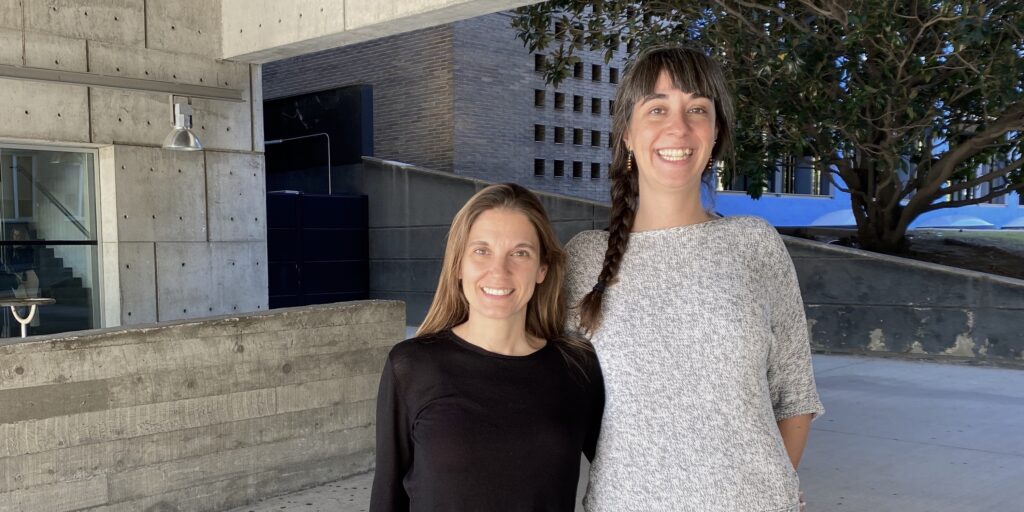Pancreatic ductal adenocarcinoma (PDA) is the most common type of pancreatic tumor and the cancer with the worst prognosis, with a five-year survival of less than 10%. To date, there are no early detection methods nor effective treatments available. For this reason, unfortunately, the diagnosis is normally made when the disease is already in advanced stages, which makes it impossible to remove the tumor with surgery, which today is the only effective treatment that exists.
Now, a project led by Drs. Elisa Espinet and Meritxell Rovira, both researchers from IDIBELL and the University of Barcelona, will study the cells that cause the most aggressive tumors. The project will be able to be carried out thanks to the generous support of the ”la Caixa” Foundation, who has granted close to one million euros to promote this study through its CaixaResearch Health 2023 call.
In this context, the team of researchers has recently observed that ductal cells exhibit more marked heterogeneity than initially believed, with each population of cells presenting specific characteristics. With the aim of analyzing the individual behavior of each cell type, the study will analyze their ability to develop tumors in mice. These results will subsequently be merged with the available clinical information of patients, allowing the identification of new biomarkers and therapeutic targets. “We hope that the results will help to make an earlier diagnosis and design more effective drugs within the framework of personalized therapies,” the researchers conclude.
Also participating in the project are Dr. Patricia Sanchom, from the IIS Aragón – Aragón Health Research Institute Foundation, Dr. Ana Rita Grosso, from the Universidade Nueva de Lisboa and the Pancreatic Cancer Association.
Other IDIBELL projects
Two more IDIBELL researchers obtained grants from this call: Eva González-Suárez (group leader at IDIBELL, ICO and CNIO) will lead the study of RANK against breast cancer. In their previous work, the team discovered that breast cancer cells express this protein in order to hide from immune cells and improve the tumor survival. Some drugs can stop their activation and thus help treating or preventing this cancer. With this project, the target is to describe the role of RANK specifically in myeloid cells, an immune cell that can facilitate tumor progression, and, this way, help finding new treatments that can reactivate the immune response.
On the other hand, Ángel Raya, coordinator of the regenerative medicine program, collaborates in a project to improve the treatment for hypertrophic cardiomyopathy, an hereditary cardiac pathology that affects one in every 500 people and exposes patients to severe complications. By analysing samples of families affected by this illness, the project wants to identify new related mutations and then study them in human cells and mouse models in order to determine their contribution to the cardiomyopathy development. This will help optimize both diagnostic and management of this pathology. This study will be lead by Jose Luis de la Pompa, from Centro de Investigaciones Cardiovasculares Carlos III (CNIC), and will also count on the collaboration of Juan Ramón Gimeno, from the Universidad de Murcia.
CaixaResearch Health Research of the ”la Caixa” Foundation
This is a competitive call in which highly prestigious international experts in their fields of study participate to select the projects of greatest scientific excellence and social impact. Since the program began in 2018, the total allocation of the call has been 120.5 million euros for 171 projects, 117 of which have been led by Spanish teams, and 54, by research groups from Portugal. Currently, this is the most important philanthropic call for research in biomedicine and health in Spain and Portugal.
This year, the main focus is on addressing big health-related challenges, highlighting infectious diseases (with 8 projects), neurosciences (with 7 projects), cardiovascular and metabolic diseases (with 7 projects), as well as oncology ( with 6 projects). At the same time, 5 additional initiatives will be dedicated to the development of enabling technologies in these areas. Of a total of 493 proposals submitted, only 33 projects have been selected to receive a total funding of 25.3 million euros.
The call is organized in collaboration with the Fundação para la Ciencia y la Tecnología (FCT), of the Ministry of Science, Technology and Higher Education of Portugal, which in this edition subsidizes 5 of the 11 selected Portuguese projects. In addition, the Luzón Foundation collaborates with the call by co-funding a project on amyotrophic lateral sclerosis (ALS).
The Bellvitge Biomedical Research Institute (IDIBELL) is a biomedical research center created in 2004. It is participated by the Bellvitge University Hospital and the Viladecans Hospital of the Catalan Institute of Health, the Catalan Institute of Oncology, the University of Barcelona and the City Council of L’Hospitalet de Llobregat.
IDIBELL is a member of the Campus of International Excellence of the University of Barcelona HUBc and is part of the CERCA institution of the Generalitat de Catalunya. In 2009 it became one of the first five Spanish research centers accredited as a health research institute by the Carlos III Health Institute. In addition, it is part of the “HR Excellence in Research” program of the European Union and is a member of EATRIS and REGIC. Since 2018, IDIBELL has been an Accredited Center of the AECC Scientific Foundation (FCAECC).

